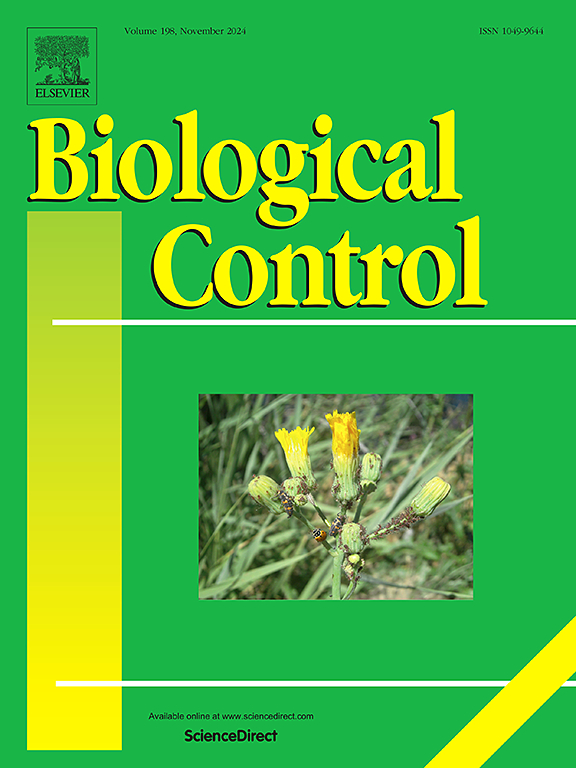阿富汗植物病害生物防治概况
IF 3.7
2区 农林科学
Q2 BIOTECHNOLOGY & APPLIED MICROBIOLOGY
引用次数: 0
摘要
在阿富汗,迫切需要制定有效的、环境上可持续的植物病害管理战略,因为化学农药和常规方法在该国长期流行。利用木霉和病毒生物农药等生物防治是一种很有前途的替代方法。农业是农村地区的主要收入来源,采用可持续方法将大大受益。最近的倡议,包括国家园艺和畜牧业项目,建立了实验室和生产设施,以促进生物防治剂的利用。这些药剂提供了一种比化学杀虫剂更无害的替代品,减轻了健康风险。然而,生物防治剂的大规模生产、储存和分销仍然存在挑战。为确保生物防治的成功整合,研究人员、推广机构和农学家之间的合作至关重要。正在进行的研究、基础设施的加强和教育对于克服这些挑战和促进生物防治技术的广泛采用至关重要。通过解决这些障碍,阿富汗可以朝着更可持续的农业做法迈进,将生物防治作为管理植物病害的负责任方法。本文章由计算机程序翻译,如有差异,请以英文原文为准。
An overview of biological control of plant disease in Afghanistan
In Afghanistan, there exists an urgent necessity for efficacious, environmentally sustainable plant disease management strategies, as chemical pesticides and conventional methods have long been prevalent in the country. Biological control utilizing agents such as Trichoderma species and viral biopesticides is emerging as a promising alternative. Agriculture, a primary source of income in rural areas, would benefit substantially from the adoption of sustainable methods. Recent initiatives, including the National Horticulture and Livestock Project (NHLP), have established laboratories and production facilities to promote the utilization of biocontrol agents. These agents offer a more benign alternative to chemical pesticides, mitigating health risks. However, challenges persist in the large-scale production, storage, and distribution of biocontrol agents. To ensure the successful integration of biological control, collaboration among researchers, extension agencies, and agriculturalists is essential. Ongoing research, infrastructure enhancements, and education are crucial for overcoming these challenges and fostering the widespread adoption of biological control techniques. By addressing these barriers, Afghanistan can progress towards more sustainable agricultural practices, employing biological control as a responsible method for managing plant diseases.
求助全文
通过发布文献求助,成功后即可免费获取论文全文。
去求助
来源期刊

Biological Control
生物-昆虫学
CiteScore
7.40
自引率
7.10%
发文量
220
审稿时长
63 days
期刊介绍:
Biological control is an environmentally sound and effective means of reducing or mitigating pests and pest effects through the use of natural enemies. The aim of Biological Control is to promote this science and technology through publication of original research articles and reviews of research and theory. The journal devotes a section to reports on biotechnologies dealing with the elucidation and use of genes or gene products for the enhancement of biological control agents.
The journal encompasses biological control of viral, microbial, nematode, insect, mite, weed, and vertebrate pests in agriculture, aquatic, forest, natural resource, stored product, and urban environments. Biological control of arthropod pests of human and domestic animals is also included. Ecological, molecular, and biotechnological approaches to the understanding of biological control are welcome.
 求助内容:
求助内容: 应助结果提醒方式:
应助结果提醒方式:


